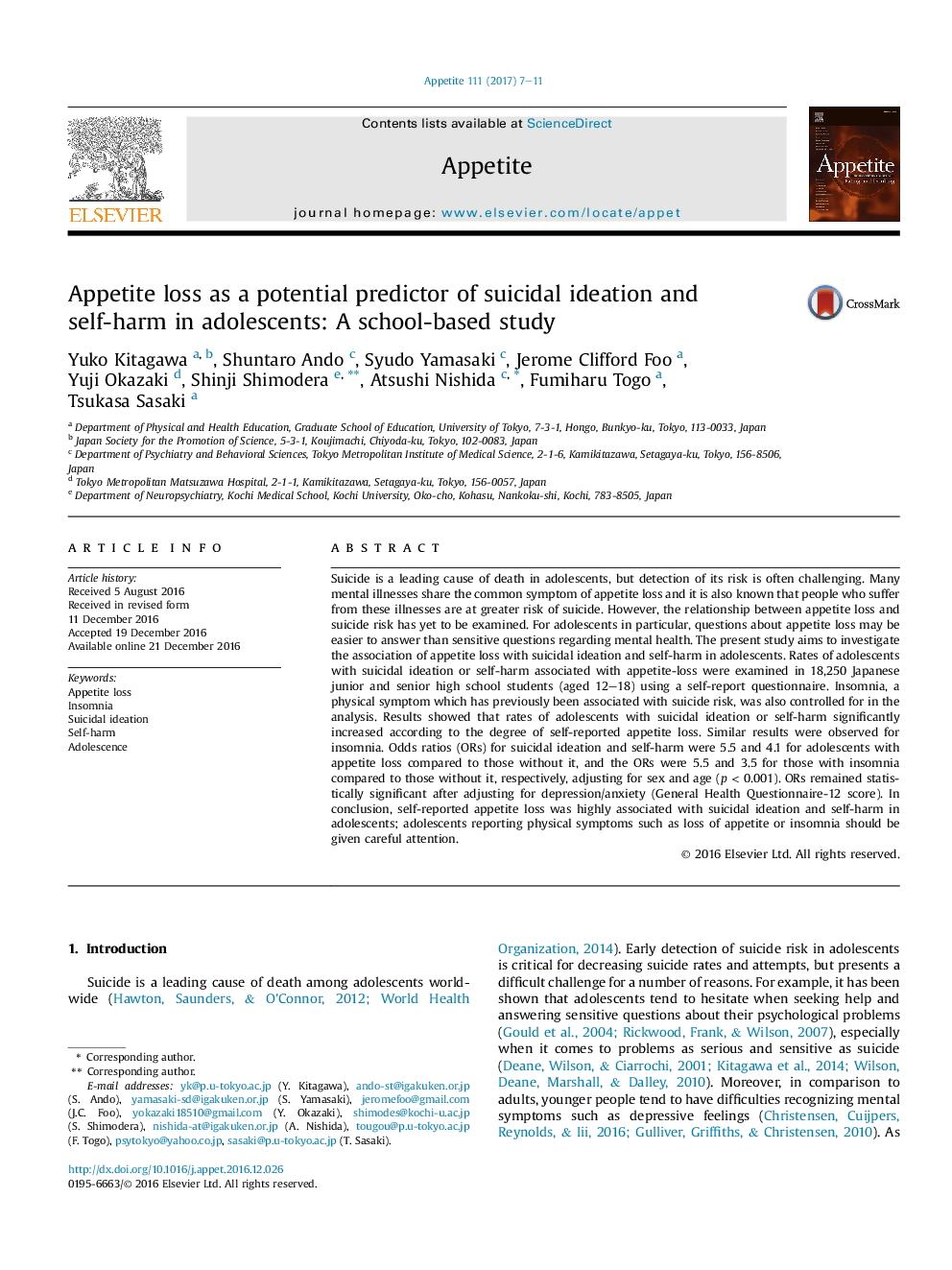ترجمه فارسی عنوان مقاله
از دست دادن اشتها به عنوان پیش بینی کننده بالقوه ایده های خودکشی و آسیب های خود در نوجوانان: یک مطالعه مبتنی بر مدرسه
عنوان انگلیسی
Appetite loss as a potential predictor of suicidal ideation and self-harm in adolescents: A school-based study
| کد مقاله | سال انتشار | تعداد صفحات مقاله انگلیسی |
|---|---|---|
| 122518 | 2017 | 5 صفحه PDF |
منبع

Publisher : Elsevier - Science Direct (الزویر - ساینس دایرکت)
Journal : Appetite, Volume 111, 1 April 2017, Pages 7-11
ترجمه کلمات کلیدی
از دست دادن اشتها، بیخوابی، افکار خودکشی، صدمه زدن به خود، بلوغ،
کلمات کلیدی انگلیسی
Appetite loss; Insomnia; Suicidal ideation; Self-harm; Adolescence;

